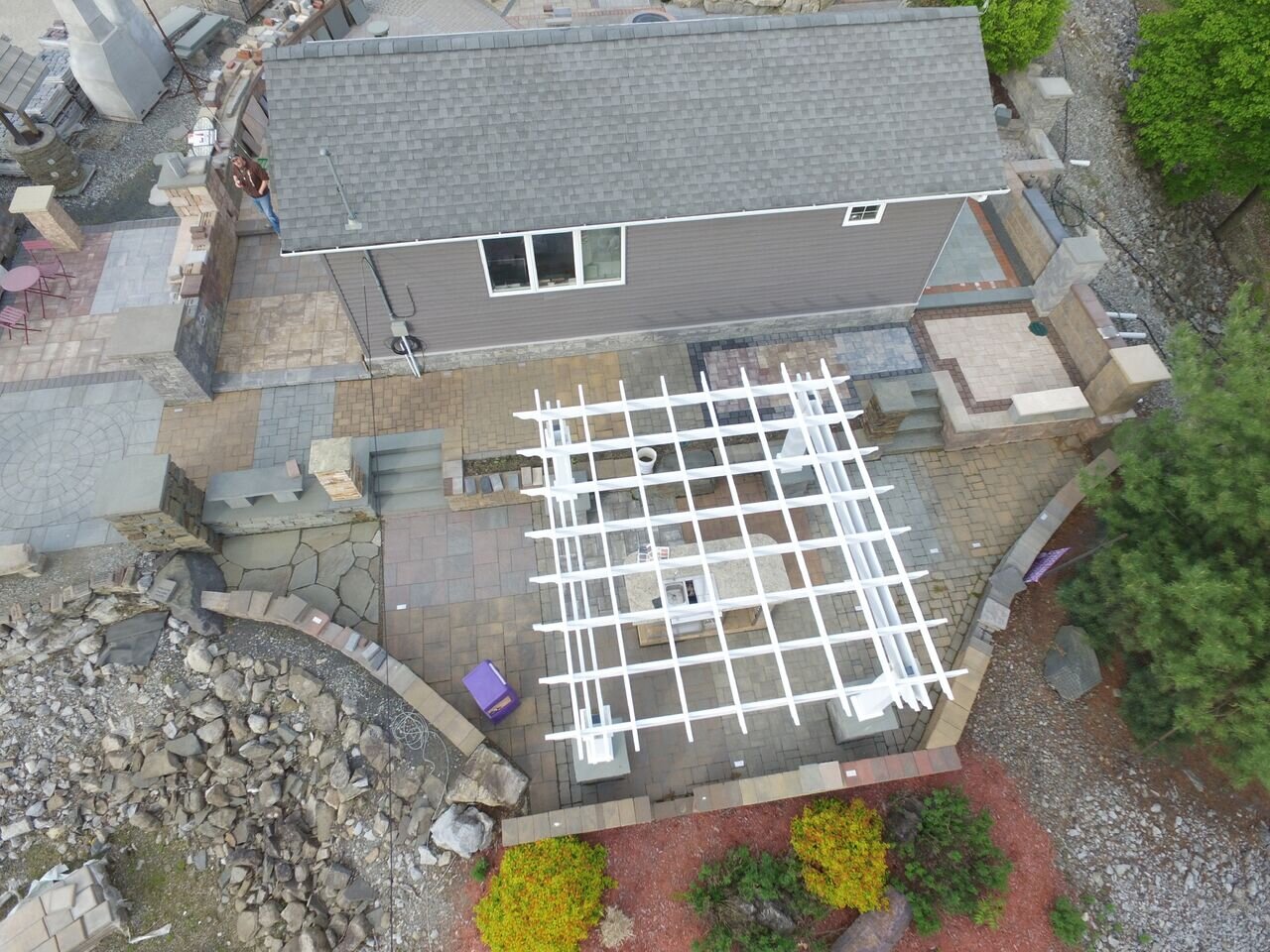It sometimes seems like a simple part of a hardscape project, but the foundation is actually the most important. No matter the quality of materials or level of craftsmanship that goes into laying paving stones and walls, your customers’ satisfaction relies on the base. Here’s how to build a reliable base, starting with our landscape supply, for your Sussex County, NJ, project.
Related: HOW TO FIND MASONRY SUPPLY COMPANIES IN THE BERGEN COUNTY, NJ, AREA
Everything Starts Here
Anything that’s going to stand the test of time relies on a solid foundation. Even if the foundation isn’t “solid” per se, it has to be well-built.
Using the right base materials will support the weight of a paver surface, and minimize movement that could cause the surface to crack, heave, or shift. In most cases where you see cracks or heaving, the fault tends to lie in an improper base. A good base will counteract the effects of shifting soil for a hardscape that will last. Whether you’re building a patio, pool deck, driveway, or walkway, and whether you’re using concrete pavers, natural stone, poured concrete, or asphalt, a good base is the key to your hardscape project’s success.
Setting the Foundation
Once the site is excavated and prepped, you can begin adding and compacting the aggregate base layer. It should resist abrasion, shed water, and be capable of being evenly compacted.
Walkways, patios, and other pedestrian applications where you will be installing concrete or natural stone pavers will require at least 4 to 6 inches of aggregate. Paver driveways tend to require at least 8 to 12 inches of aggregate. New Jersey’s cold climate means more aggregate may be needed to compensate for the freeze-thaw cycle. For heavy clay soils and driveway applications, add a geotextile underlayment to prevent migration of the aggregate into the surrounding soil. Our landscape supply has the materials you need, our staff can help you calculate the right amounts, and our delivery service ensures that the materials will be on site when you need them.
Knowing the Details
After the aggregate has been spread, compacted, and sloped for drainage, it’s time for the bedding layer: a one-inch layer of bedding sand. Instead of sand, you can also use a small chip stone. Small chip stone is becoming popular as bedding material for hardscapes because it allows for easy drainage, and it is easier to work with in different weather conditions. Our staff can help estimate quantities and our reliable delivery will keep your project on schedule.
If you are installing a permeable hardscape, larger base aggregate will likely be needed to allow for easy drainage of rain and snowmelt. A good porous aggregate is larger in diameter and contains less sand and fine particles. It should be easy to shovel, difficult to compact, and of course allow for effective drainage. Our landscape supply carries both regular and permeable aggregates, to support any hardscape project.
A strong base doesn’t just apply to hardscape installations. Gardens, gravel paths, playgrounds, and retaining walls also rely on a reliable base. We offer a huge variety of mulch, topsoil, pea gravel, and decorative stones to provide the best base for any landscape project. Give us a call and we’ll be happy to assist you with estimating quantities, choosing the right materials, and delivering bulk supplies to your next project!
Related: THE BENEFITS OF SOURCING FROM A RELIABLE WHOLESALE NURSERY IN BERGEN COUNTY, NJ


